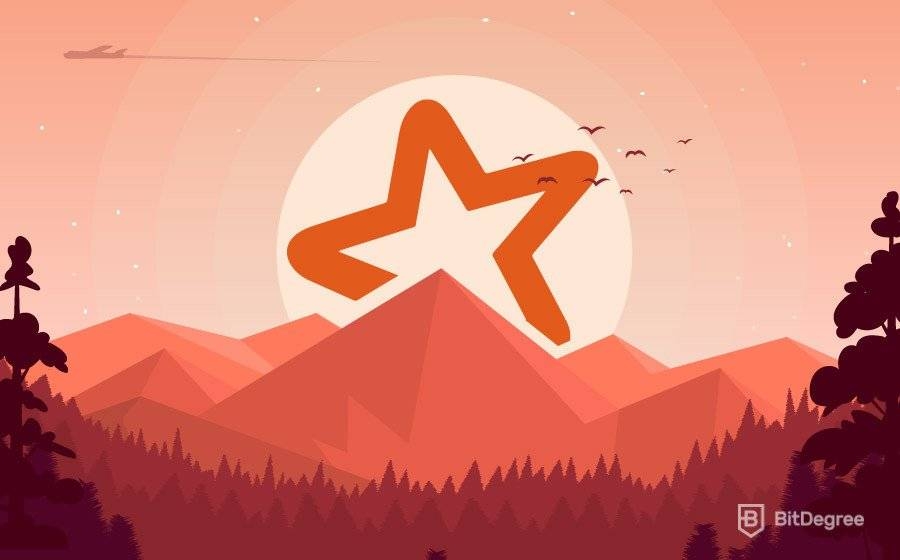Stop overpaying - start transferring money with Ogvio. Sign up, invite friends & grab Rewards now! 🎁
As time goes on, the technology surrounding the analysis and computation of Big Data is also evolving. Since the concept of Big Data (and everything surrounding it) is becoming increasingly popular, various companies related to this concept (and similar ones, such as machine learning, AI development and so on) are constantly looking for people who would be proficient in using the technology and software associated with Big Data. Spark is one of the more well-known and popular pieces of software used in Big Data analysis, so it’s beneficial to learn about the way to land a job related to it. To help you achieve this, this tutorial will provide Apache Spark interview questions that you can expect to get asked during your job interview!
Table of Contents
- 1. Introductory Knowledge of Spark
- 1.1. Question 1: What is Spark?
- 1.2. Question 2: What are some of the more notable features of Spark?
- 1.3. Question 3: What is ‘SCC’?
- 1.4. Question 4: What’s ‘RDD’?
- 1.5. Question 5: What is ‘immutability’?
- 1.6. Question 6: What is YARN?
- 1.7. Question 7: What is the most commonly used programming language used in Spark?
- 1.8. Question 8: How many cluster managers are available in Spark?
- 1.9. Question 9: What are the responsibilities of the Spark engine?
- 1.10. Question 10: What are ‘lazy evaluations’?
- 1.11. Question 11: Can you explain what a ‘Polyglot’ is in terms of Spark?
- 1.12. Question 12: What are the benefits of Spark over MapReduce?
- 1.13. Question 13: Okay, we understand that Spark is better than MapReduce, so it’s not worth learning it?
- 1.14. Question 14: What is a ‘Multiple Formats’ feature?
- 1.15. Question 15: Explain ‘Real-Time Computation’.
- 2. Experienced Questions on Spark
- 2.1. Question 1: What are ‘partitions’?
- 2.2. Question 2: What is Spark Streaming used for?
- 2.3. Question 3: Is it normal to run all of your processes on a localized node?
- 2.4. Question 4: What is ‘SparkCore’ used for?
- 2.5. Question 5: Does the File System API have a usage in Spark?
- 3. Summary
Introductory Knowledge of Spark

As you’ll probably notice, a lot of these questions follow a similar formula - they are either comparison, definition or opinion-based, ask you to provide examples, and so on.
Most commonly, the situations that you will be provided will be examples of real-life scenarios that might have occurred in the company. Let’s say, for example, that a week before the interview, the company had a big issue to solve. That issue required some good knowledge with Spark and someone who would have been an expert on Spark interview questions. The company resolved the issue, and then during your interview decided to ask you how you would have resolved it. In this type of scenario, if you provided a tangible, logical and thorough answer that no one in the company had even thought about, you are most likely on a straight path to getting hired.
So, with that said, do pay attention to even the smallest of details. These first questions being of the introductory level does not mean that they should be skimmed through without much thought.
Question 1: What is Spark?
The very first thing that your potential employers are going to ask you is going to be the definition of Spark. It would be surprising if they didn’t!
Now, this is a great example of the “definition-based” Spark interview questions that I mentioned earlier. Don’t just give a Wikipedia-type of an answer - try to formulate the definitions in your own words. This will show that you are trying to remember and thinking about what you say, not just mindlessly spilling random words out like a robot.
Apache Spark is an open-source framework used mainly for Big Data analysis, machine learning and real-time processing. The framework provides a fully-functional interface for programmers and developers - this interface does a great job in aiding in various complex cluster programming and machine learning tasks.
Question 2: What are some of the more notable features of Spark?
This is one of the more opinion-based Spark interview questions - you probably won’t need to recite all of them one by one in alphabetical order, so just choose a few that you like yourself and describe them.
To give you a few examples of what you could say, I’ve chosen three-speed, multi-format support, and inbuilt libraries.
Since there is a minimal amount of networks processing the data, the Spark engine can achieve amazing speeds, especially when compared with Hadoop.
In addition to that, Spark supports plenty of data sources (since it uses SparkSQL to integrate them) and has a great variety of different, default libraries that Big Data developers can utilize and use.
Question 3: What is ‘SCC’?
Although this abbreviation isn’t very commonly used (thus resulting in rather difficult surrounding Spark interview questions), you might encounter such a question.
SCC stands for “Spark Cassandra Connector”. It is a tool that Spark uses to access the information (data) located in various Cassandra databases.
Question 4: What’s ‘RDD’?
RDD stands for “Resilient Distribution Datasets”. These are operational elements that, when initiated, run in a parallel to one another. There are two types of known RDDs - parallelized collections and Hadoop datasets. Generally, RDDs support two types of operations - actions and transformations.
Question 5: What is ‘immutability’?
As the name probably implies, when an item is immutable, it cannot be changed or altered in any way once it is fully created and has an assigned value.
This being one of the Apache Spark interview questions which allow some sort of elaboration, you could also add that by default, Spark (as a framework) has this feature. However, this does not apply to the processes of collecting data - only their assigned values.
Question 6: What is YARN?
YARN is one of the core features of Spark. It is mainly concerned with resource management, but is also used to operate across Spark clusters - this is due to it being very scalable.
Question 7: What is the most commonly used programming language used in Spark?
A great representation of the basic interview questions on Spark, this one should be a no-brainer. Even though there are plenty of developers that like to use Python, Scala remains the most commonly used language for Spark.
Question 8: How many cluster managers are available in Spark?
By default, there are three cluster managers that you can use in Spark. We’ve already talked about one of them in one of the previous Apache Spark interview questions - YARN. The other two are known as Apache Mesos and standalone deployments.
Question 9: What are the responsibilities of the Spark engine?
Generally, the Spark engine is concerned with establishing, spreading (distributing) and then monitoring the various sets of data spread around various clusters.
Question 10: What are ‘lazy evaluations’?
As the name should imply, this type of evaluation is delayed up until the point that the value of the item is needed to be employed. Furthermore, lazy evaluations are only executed once - there are no repeat evaluations.
Question 11: Can you explain what a ‘Polyglot’ is in terms of Spark?
As already mentioned before, there will be some terms considering Spark interview questions that might be vital to secure that job position. Polyglot is a feature of Apache Spark that allows it to provide high-level APIs in Python, Java, Scala and R programming languages.
Question 12: What are the benefits of Spark over MapReduce?
- Spark is a lot faster than Hadoop MapReduce since it implements processing from around 10 to 100 times faster.
- Spark provides in-built libraries to perform multiple tasks from the same core. It can be Steaming, Machine Learning, batch processing, Interactive SQL queries.
- Spark is capable of performing computations multiple times on the same dataset.
- Spark promotes caching and in-memory data storage and is not disk-dependent.
Question 13: Okay, we understand that Spark is better than MapReduce, so it’s not worth learning it?
It is still considered a piece of valuable information in the Spark interview questions to know MapReduce. It is a paradigm used by many data tools including Spark as well. MapReduce becomes exclusively important when it comes to big data.
Question 14: What is a ‘Multiple Formats’ feature?
This feature means that Spark supports multiple data sources such as JSON, Cassandra, Hive, and Parquet. The Data Sources API offers a pluggable mechanism for accessing structured data though Spark SQL.
Question 15: Explain ‘Real-Time Computation’.
Sparks has a ‘Real-Time Computation’ and has less latency because of its in-memory computation. It has been created for massive scalability and the developers of it have documented users of the system running production clusters with thousands of nodes and support several computation models.
Experienced Questions on Spark
At this point in the tutorial, you should probably have a pretty good idea of what Spark interview questions are and what type of questions you should expect during the interview. Now that we’re warmed up, let’s transition and talk about some of the more popular Spark interview questions and answers for experienced Big Data developers.

Truth be told, the advanced versions of these questions are going to be very similar to their basic counterparts. The only difference is that the advanced versions are going to require a little bit of knowledge and more research than the basic ones.
Not to worry, though - if you’ve already studied Apache Spark quite extensively, these questions should also feel like a breeze to you. Whether you haven’t started learning about Apache Spark or you’re already an expert - these Spark interview questions and answers for experienced developers are going to help you extend and further your knowledge in every step of your Spark journey.
Question 1: What are ‘partitions’?
A partition is a super-small part of a bigger chunk of data. Partitions are based on logic - they are used in Spark to manage data so that the minimum network encumbrance would be achieved.
You could also add that the process of partitioning is used to derive the before-mentioned small pieces of data from larger chunks, thus optimizing the network to run at the highest speed possible.
Question 2: What is Spark Streaming used for?
You should come to your interview prepared to receive a few Spark interview questions since it is quite a popular feature of Spark itself.
Spark Streaming is responsible for scalable and uninterruptable data streaming processes. It is an extension of the main Spark program and is commonly used by Big Data developers and programmers alike.
Question 3: Is it normal to run all of your processes on a localized node?
No, it is not. This is one of the most common mistakes that Spark developers make - especially when they’re just starting. You should always try to distribute your data flow - this will both hasten the process and make it more fluid.
Question 4: What is ‘SparkCore’ used for?
One of the essential and simple Spark interview questions. SparkCore is the main engine responsible for all of the processes happening within Spark. Keeping that in mind, you probably won’t be surprised to know that it has a bunch of duties - monitoring, memory and storage management, task scheduling, just to name a few.

- Easy to use with a learn-by-doing approach
- Offers quality content
- Gamified in-browser coding experience
- Free certificates of completion
- Focused on data science skills
- Flexible learning timetable

- High-quality courses
- Nanodegree programs
- Student Career services
- Nanodegree programs
- Suitable for enterprises
- Paid certificates of completion

- A wide range of learning programs
- University-level courses
- Easy to navigate
- University-level courses
- Suitable for enterprises
- Verified certificates of completion
Question 5: Does the File System API have a usage in Spark?
Indeed, it does. This particular API allows Spark to read and compose the data from various storage areas (devices).

Did you know?
Have you ever wondered which online learning platforms are the best for your career?
Summary
Try not to stress and overdo yourself before the interview. I guess that you didn’t apply for a Spark developer’s job without even knowing what Spark is. Relax - you already know a lot! Try to focus all of your attention on these Spark interview questions - they will help you revise the most important information and prepare for the imminent interview.

When you’re already in there, try to listen to every question and think it through. Stress might lead to rambling and confusion - you don’t want that! That’s why you should trust your skills and try to keep a leveled head. One piece of advice that seems to work in these job interviews is to try and answer each question shortly and simply as possible, but then elaborate with two-three follow-up sentences - this will show your potential employers that you not only know the answers to their questions but also possess additional knowledge on the topic at hand.









